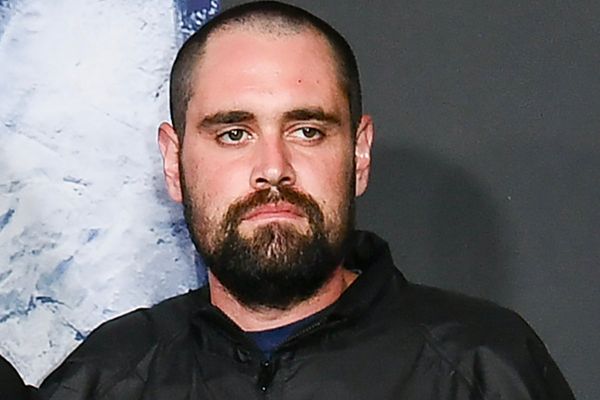
WHEN I was young, and a fan without a laptop, I would frequently boo Aiden McGeady when he played against my team. Neil Lennon too. And Barry Ferguson, for that matter.
Why? Well, first and foremost, because they were playing against my team. Secondly, though I would never have conceded it at the time, because they were good players.
In McGeady’s case, admittedly, it also stemmed from his decision to choose to represent the Republic of Ireland over Scotland. A decision, by the way, he was well within his rights to make. To the irrational football fan though, what did that matter?
Here was an outrageously gifted young player who would have undoubtedly improved the Scotland team of the time, who had chosen to represent another nation. The nation in question, at least to me, was an irrelevance.
Ignorant of the context behind his decision, and frankly caring little for it, that immediately qualified him for the panto baddie treatment. Every time he got the ball, he would be booed for his apparent treachery.
It was all a bit of harmless fun, or so I thought. But then McGeady popped up in a BBC Scotland interview this week with a rather different take, one that cast a darker pall over the motives behind the abuse he suffered at the time, which clearly went a lot further in some cases than booing his every touch of the ball.
McGeady asked why it was he who was singled out for such treatment, leaving the question dangling over whether it was simply because he was a Celtic player who had specifically chosen to play for the Republic of Ireland. In short, whether the abuse was motivated by people being put out over Scotland losing such a talent, or whether it came from inherent anti-catholic or anti-Irish prejudice.
He highlighted two other Scottish-born players who opted to represent other nations - Brian McLean who turned out for Northern Ireland, and Scott Arfield, who played for Canada – and asked why they too weren’t on the receiving end.
Without doubting the sincerity of McGeady’s viewpoint, there is a false equivalence here. Frankly, and with the greatest of respect to McLean, it wouldn’t have mattered a jot if he had declared for Scotland or Brazil, given he never had the remotest chance of winning a cap for either nation.
In Arfield’s case, he was 27 before he opted to represent Canada over Scotland, when it became apparent that his chances of ever gaining full international recognition were slim to none in what was clearly the most competitive area of the Scotland team at the time.
McGeady had his own perfectly justifiable reasons for choosing to represent Ireland when he did, having been involved in the set-up since he was a schoolboy. Rightly or wrongly though, players who have waited for their chance with the nation of their birth and then been forced to seek alternative routes into international football have been viewed more sympathetically.
The same Fir Park terraces that McGeady calls out as being among those that gave him abuse for opting to play for Ireland, for instance, also revered Tommy Coyne. In fact, they gave him a hero’s welcome back onto the pitch when he returned from playing a starring role with Jack Charlton’s Ireland side in the 1994 World Cup.
This is not to say that Scottish football does not have a problem with anti-Irish or anti-catholic sentiment. Or indeed that a lot of the abuse that came McGeady’s way was not rooted in it. Since the return of supporters to stadiums following the Covid pandemic, the frequency of sectarian chanting from sections of the Rangers support seems to have gone through the roof, for example. As have chants of ‘orange b******s’ from some Celtic supporters, lest I be accused – wearily - of failing to mention ‘both sides’.
There is a tendency though for all of those involved in the Old Firm bubble to view things exclusively through that prism, and assume that everyone else is also motivated by the worst of the odious tendencies that beset this bitter rivalry. It comes from the same place as the ‘huns/tims without the bus fare’ nonsense and queries like ‘what team do you really support?’
McGeady was guilty of recycling one of the old tropes himself during his interview, saying there ‘aren’t a lot of Scotland fans in Glasgow anyway’. In actual fact, in 2019, Rangers were the most represented fanbase among members of the Scotland Supporters Club, while Celtic were third behind Aberdeen.
I feel for McGeady, I genuinely do. He made a personal choice and received shedloads of abuse for it, some – or most - of which I do not doubt was sectarian in nature.
And undoubtedly, Scottish football does need to have a reckoning when it comes to the blind eye we turn to anti-catholic chanting week-in, week-out from the terraces. It is as bad, in my view, as it has ever been in my own 30-plus years of attending top-flight fixtures.
I am also not a catholic. So, while I know my own motivations, who am I to say that the lived experience of McGeady – or any other catholic in Scotland for that matter – is not what has driven him to arrive at such conclusions? I have no idea what it is like, hence why it would be easy for me to be dismissive of his claims, given I can never really walk a mile in his shoes or play a game in front of Scottish fans in his boots.
The point I am trying to make here is that not everything is black and white, despite the binary times we live in. Just as sectarian abuse of McGeady is disgusting, he can’t tar everyone who disapproved of his call with the same broad-stroked brush of being a bigot.
Sometimes, as hard as it may be for some to believe, religion has nothing to do with football. Regrettably though, it has to be said, a lot of the time in Scotland it does.







